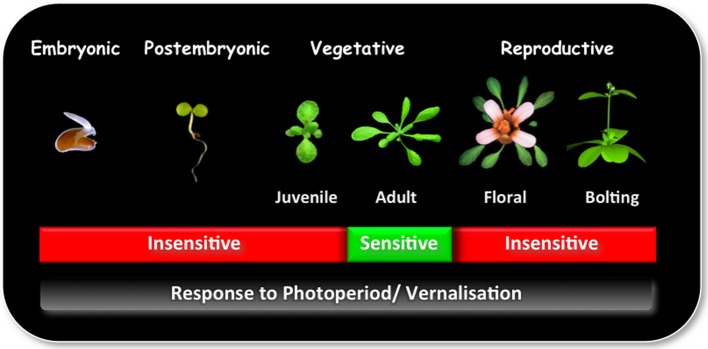Figure 1.

The ability to sense and respond to photoperiod and/or vernalization varies in different phases of development. Plants undergo a series of qualitative transitions during their life-cycle in response to environmental and endogenous factors. One of the most distinguishable is the transition from a vegetative to reproductive phase of development, also known as the transition to flowering. This stage is preceded by the juvenile-to-adult phase transition within the vegetative phase. During the juvenile phase plants are incompetent to initiate reproductive development and are effectively insensitive to photoperiod and/ or vernalization. With the change to adult phase, plants attain competence to respond to floral inducers, which is required for the transition to the reproductive phase. Photoperiod is perceived in the leaf, whereas vernalization at the shoot apical meristem.
